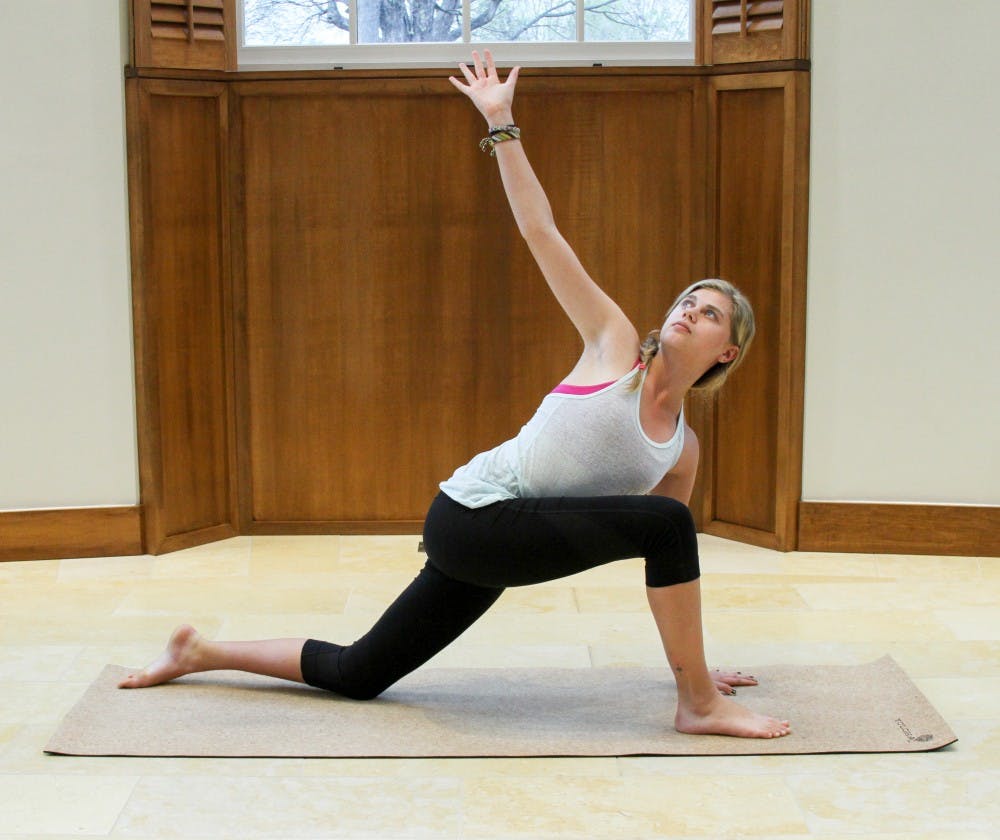It’s been a long, cold, confusing winter, but spring is finally here and it’s time to focus on both mental and physical health.
Though spring brings more vitamin D and opportunities to explore outdoors, for those facing seasonal allergies it can be dreaded. Elon University’s Medical Director of Student Health and University Physician Dr. Ginette Archinal said it could be too late to combat against seasonal allergies.
“Pollen season started weeks ago,” Archinal said. “It’s almost too late for prevention, but there are ways to decrease your reaction to the change in seasons.”
Her first tip: Know if you have seasonal allergies.
“A lot of people don’t realize they have allergies and just think it is a cold that isn’t going away,” Archinal said. “Elon is a beautiful campus, but it has lots of trees and lots of pollen, so often people who have never had allergies before don’t know what to look for.”
She says that if someone develops a cold at the beginning of every fall or spring that develops into sinus infections or other illness, the underlying cause is usually seasonal allergies.
Archinal said that conjunctivitis, also known as pink eye, which circulated around Elon’s campus earlier this semester, could actually be a manifestation of allergies.

“Conjunctivitis can be viral, bacterial or allergic,” Archinal said. “The only time we are absolutely sure that it is bacterial is if someone wakes up in the morning and their eye lids are stuck together, but if someone has redness and crusting, it is probably due to allergies.”
The best way to find out if you have seasonal allergies is to test it by personal experience, said Archinal, then go to the doctor to see whether their sickness is allergic or infectious.
Prevention is the key for seasonal allergies according to Archinal, who warns against the worsening of allergy symptoms into illness like sinus infections and other bacterial infections. She suggests checking the local pollen count in the area by visiting www.pollen.com to see the count for the day and the main producers of the pollen in the area before spending time outside.
“Being outside has so many physiological benefits,” Archinal said. “But you need to know how you react to seasonal allergies before you start and if you do have allergies, you should take an antihistamine.”
Junior Samantha Perry has seasonal allergies and suffers from seasonal asthma, but still loves to run outside. Her tip? Wash clothing immediately.
“As soon as I get back from a run, I leave my shoes at the door, throw my clothes in the washer and jump in the shower,” Perry said. “I work hard to keep the pollen out of my house and room and I think it has saved me this season.”
For junior Lydia Willig, yoga has been her way to stay centered and healthy during the change in season. Willig began practicing yoga two years ago at Elon’s campus and is now an instructor for Campus Recreation and says her style of teaching is more of a “suggestion” where people can come and take what they want from the class.
“Even if you don’t realize it, when you’re in a yoga class, you’re cultivating your mind, your imagination, your creativity,” Willig said. She says that yoga is a great place for people to turn not just for their physical health, but also their mental health.
Spring not only brings seasonal allergies, but also intense work loads and count downs to summer, leaving students often times feeling drained and burnt out. Willig attributes yoga for keeping her mind healthy during the hectic times.
“I think the most common reason people come to yoga classes are usually because they are stressed and they want to de-stress with yoga. Just being able to stretch the body, releasing tension in your muscles releases tension in your mind,” said Willig.
Her advice for those trying to stay motivated and stress-free during the spring is to try and incorporate focus on the breath in everyday activates. “Your breath can actually heal ailments in your body and calm down the mind to help you think more clearly, especially during the hecticness of spring,” said Willig.
Willig says with the emergence of springtime, she has taken advantage of the bright mornings to incorporate her exercise before she heads to class.
“Doing yoga when you wake up in the spring is super revitalizing,” said Willig. “When it is 7 a.m. and sunny outside, it wakes the body up and it’s a great time to do Sun Salutations (a sequence of yoga poses).”
For those who want to practice yoga outside but face the challenges surrounding allergies, Willig suggests practicing “Paranáyama,” which means alternate inhalations and exhalation through the nose. “It’s a really good exercise for clearing out your system and getting things flowing again,” Willig said.
And for those hitting the gym preparing for summer, Willig says her main advice is to “focus on how the body is functioning and not how the body looks.” For Willig, this means realizing yoga is “more about your insides than your outsides.”
Incorporating yoga in your daily routine could be as easy as taking a class that Elon offers at the gym or practicing with a video from YouTube. Willig said it took her quite some time to “hit her stride with yoga,” but once she found a good teacher, she was hooked.
Graphic by Alex Toma


